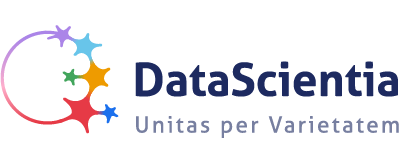COURSE DESCRIPTION
This course will cover the following topics:
- the main issues which can be addressed when data and knowledge resources have to be integrated.
- a general methodology (iTelos) for knowledge and data analysis, modeling and integration.
- an analysis of the state of the art tools and methodologies for data analysis, modeling and integration.
- an introduction to ontologies, Extended ER models and linguistic resources.
This is a hands-on, lab and experiment based course. Students will be given a data analysis/modelling/integration problem that they will have to solve, possibly, while taking the class. During the experiment, students will have to apply to the problem the notions introduced in class. The students splitted in teams, where each team will solve an integration problem adopting the methodology taught during the lectures.
INSTRUCTIONS
The 2021 edition of KDI is taught with the presence in class of both lecturers and students. As for the last years, presence, even if not a formal requirement, is strongly suggested given that this is a hands-on lab course. Passing the exam amounts to developing a project, which ultimately will lead to the generation of a Knowledge Graph (and support documentation) starting from data which will have to be found in the Web. This goal will be reached under the continuous supervision of the lectures providing advice and support, and in collaboration, doing joint work with a colleague taking this course. There are no easy or cost-effective ways to achieve this goal without a continuous presence in class. Given the current Covid situation, in case someone taking the course cannot be in class for a certain lecture, that lecture will be registered and made available to him/ her. The request of a registration should be done as soon as possible before the beginning of the lecture (ideally 2-3 days before) and should supported by a valid justification. Notice, however, that these registered lectures will unlikely have the same quality as the physical lecture, in particular for those classes which will consist of one-to-one interactions among the students and the lecturers. In most cases an additional interaction with the lecturers during the Q&A lectures will achieve a better goal (see below).
The lectures will take place following the scheduling indicated in the section Calendar and Material. The course material includes slides, demo videos, support resources and links, all provided on the web site under the Calendar and Material section. For those interested, it is possible to consult the registrations of the lectures of the A.Y. 2020/2021 (here). This might be occasionally useful but with the following two points of attention: (1) while being very similar in spirit to the last year, the course this year presents some substantial differences, all expoiting that the lectures are in presence, and (2) in most cases we suggest you ask the lecturers for feedback or suggestions. In particular, just in order to help student, after the end of each phase of the methodology taught in the KDI course, there will be a Q&A lecture in which the students can ask questions about all their open problems and doubts.
At the end of the course students will be asked to fill an online questionnaire about the overall process and methodology they will have learned. This feedback is very important to us, as it is the basis for a continuous evolution and improvement of the methodology being taught. To this extent students are strongly encouraged to raise doubts, ask questions, discuss the doubts they have about the methodology itself during the Q&A lectures.
LEARNING OUTCOMES
The Knowledge and Data Integration course aims to providing motivations, definitions, theorems and techniques for a concrete and effective understanding of what (in the context of computer science) is meant for knowledge and data integration. Providing also, techniques for analyzing and modelling knowledge and data as well as techniques for data and knowledge integration. Stimulating the students to continue their career with higher interest into data and knowledge representation in their own field of expertise, and to produce computer-processable solutions of relevant problems.
CALENDAR AND MATERIAL
The course runs from Sep, 13, 2021 till Dec 13, 2021 with the following schedule
- Monday, 17:30-19:00, Room A209
- Wednesday, 9:30-11:00, Room A224
Course Features
- Lecture 0
- Quiz 0
- Duration 48 hours
- Skill level All levels
- Language English
- Students 273
- Assessments Yes
Requirements
- Data management: basic programming skills in python and/or java/javascript
- Databases modeling: ER modeling, (Ontology modeling if possible, Ontology definition desirable)
- Web languages (mainly RDF and OWL)
- Attitude to teamwork
Target audiences
- The intended target are the students of the master degree in Computer Science of the Department of Computer Science and Information Engineering (DISI) of the University of Trento.



